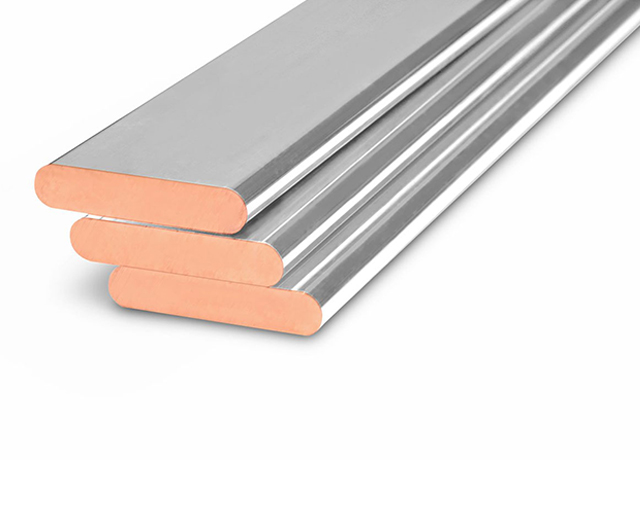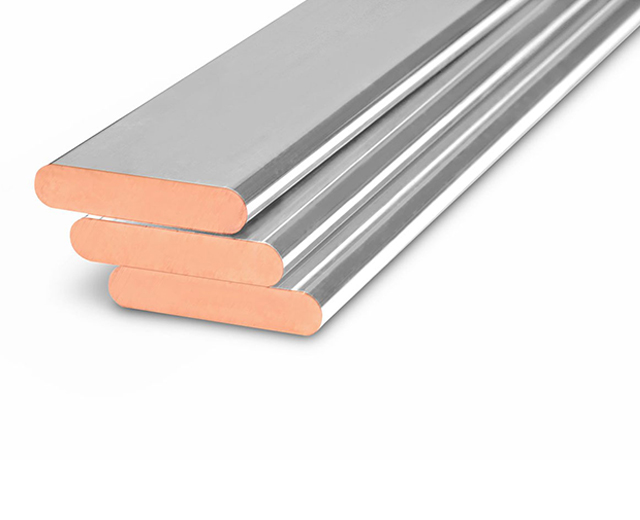

Tinned copper flat bars are essential components in electrical systems, offering excellent conductivity, corrosion resistance, and mechanical strength. Widely used in switchgear, distribution panels, power systems, and industrial automation, these bars ensure efficient and safe electrical connections.

A tinned copper flat bar is a copper strip coated with a thin layer of tin. The tin plating improves corrosion resistance, prevents oxidation, and extends the lifespan of the copper bar in harsh environments. Also referred to as a tinned Copper Busbar or copper tinned Busbar, it is commonly used as a busbar tinned copper solution in electrical distribution systems.
High Electrical Conductivity: Provides excellent current-carrying capacity with minimal resistance.
Corrosion Resistance: Tin coating protects the copper from oxidation and environmental damage.
Mechanical Strength: Solid flat bars resist bending and deformation under load.
Versatile Sizes: Available in various thicknesses, widths, and lengths for different applications.
Easy Installation: Compatible with standard busbar mounting systems and electrical panels.
Reliable Busbar Performance: Ensures stable connections in tinned copper busbar and busbar tinned copper systems.
Tinned copper flat bars and copper tinned busbars are widely used in:
Switchgear & Distribution Panels – Centralized grounding and power distribution
Industrial Automation Equipment – Reliable current conduction in control systems
Data Centers & Telecom Racks – Stable connections for sensitive electronics
Renewable Energy Systems – Solar inverters, battery storage, and wind turbines
Electrical Cabinets – Simplifies wiring and enhances busbar grounding efficiency
| Specification Item | Options |
|---|---|
| Material | Copper, Tin-Plated Copper |
| Thickness | 2mm – 20mm (customizable) |
| Width | 10mm – 150mm (per requirement) |
| Surface Finish | Tin-plated, nickel-plated |
| Length | Standard or custom lengths |
| Hole & Mounting | Pre-drilled holes for bolts, lugs, or terminals |
Our tinned copper flat bar solutions can be customized to meet industrial, commercial, and renewable energy project specifications, ensuring optimal electrical performance and safety.
Minimizes electrical resistance and power loss
Reduces maintenance needs due to corrosion protection
Provides stable connections in tinned copper busbar applications
Supports high-current applications in industrial and commercial systems
Compatible with standard busbar systems for easy integration
Ensure contact surfaces are clean and free of oxidation before installation
Use appropriate bolts, lugs, and insulators for secure connections
Periodically inspect busbar tinned copper for corrosion or loose terminals
Test grounding and electrical continuity to maintain system reliability
Q1: What is a tinned copper flat bar?
A tinned copper flat bar is a copper strip coated with a thin layer of tin, providing excellent corrosion resistance, high conductivity, and mechanical strength. It is widely used as a tinned copper busbar or copper tinned busbar in electrical systems.
Q2: What are the main applications of tinned copper bars?
Switchgear and distribution panels
Industrial automation equipment
Data centers and telecom racks
Renewable energy systems (solar, wind, battery storage)
Electrical cabinets and grounding systems
Q3: What materials are used in tinned copper busbars?
Tinned copper flat bars are made from high-conductivity copper and coated with tin or nickel to prevent oxidation and improve durability.
Q4: Can tinned copper flat bars be customized?
Yes, they can be customized in:
Thickness and width
Length and hole patterns
Surface finish (tin-plated, nickel-plated)
This ensures compatibility with specific busbar systems or electrical panels.
Q5: How do I install a busbar tinned copper?
Mount the bar securely using bolts, lugs, or insulators
Ensure contact surfaces are clean and free of oxidation
Periodically inspect for corrosion or loose terminals
Test electrical continuity and grounding as required
Q6: What are the advantages of using tinned copper busbars?
High electrical conductivity with minimal power loss
Corrosion-resistant, reducing maintenance needs
Reliable in high-current applications
Compatible with various busbar tinned copper systems
Long service life and improved electrical safety
Q7: How is a tinned copper flat bar different from a regular copper bar?
The tin coating protects the copper from oxidation and environmental corrosion, making tinned copper flat bars more durable and suitable for harsh industrial environments compared to plain copper bars.